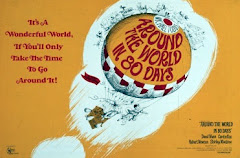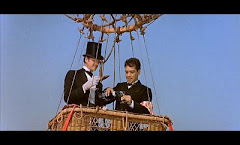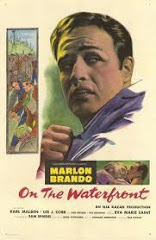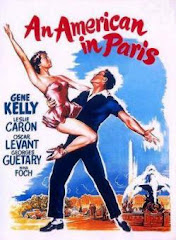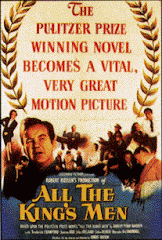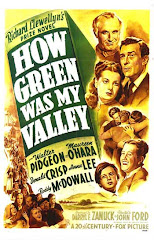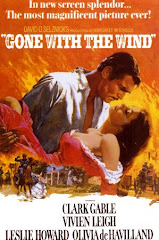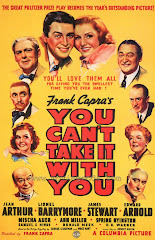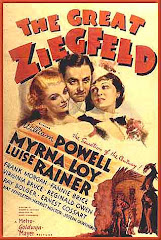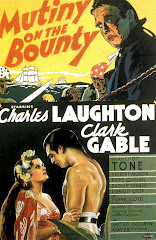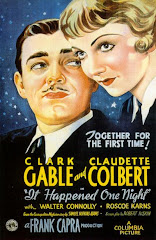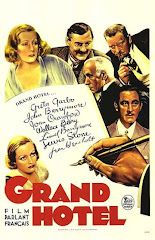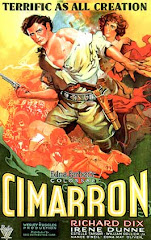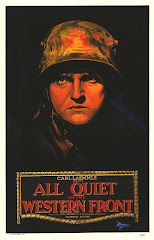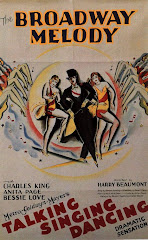Director: Elia Kazan
Cast: Marlon Brando, Eva Marie Saint, Rod Steiger, Karl Malden, Lee J. Cobb
Genre: Drama
Other Nominees: The Caine Mutiny, The Country Girl, Seven Brides for Seven Brothers, Three Coins in the Fountain
Genre: Drama
Other Nominees: The Caine Mutiny, The Country Girl, Seven Brides for Seven Brothers, Three Coins in the Fountain
On The Waterfront boasts one of the most well recognized and memorable scenes in Hollywood history, the famous “contender” scene. I have to admit that since seeing the film I have experienced a full blown obsession with this scene and have watched it repeatedly. While there is certainly a lot more to this film than just this one scene, I have found that to reflect on On The Waterfront is to reflect on this one, grand slam, scene.
The scene takes place in the back of a small cab where two characters sit uncomfortably together. A Venetian blink covers the back window and the camera never gives us any external or wide shots of the conversation. Conditions are cramped and claustrophobic throughout. We see the well dressed mob lawyer Charlie “The Gent” (played by Rod Steiger) attempt to convince his little brother, the subdued Terry Malloy, not to testify against the mob gang that operates out of the local waterfront (Terry is played by Marlon Brando, who deservedly won an Oscar for his role). At first Charlie resorts to typical mob tactics and attempts to bribe his little brother with a high paying job. But Terry has seen too much, been implicated in too much, and life is no longer simple. He tells his brother that “there’s more to this than I thought… much more.” He cannot make money and be ignorant to the corruption around him. The first of many great moments in the scene comes with a sudden shift from relaxed conversation between two brothers, to an immediate anxiety about what will happen next. After failing with the bribe, Charlie begins to get desperate, and in not so many words lets slip the fact that this cab ride is actually a last ditch effort to convince Terry not to rat, and that should he be unmoved the cab is taking Terry to his death. In a moment of frustration, Charlie reveals these details:
Well make up your mind before we get to 437 River Street!!!
I cannot recall seeing a better example of building tension within a scene. This explosive comment is followed up by a shocked silence and you can physically see the realization of what is being said dawn in Terry’s mind. Suddenly, any trace of the relaxed conversation is gone. But for Charlie the tension held within the silence is even worse and in a state of shock he resorts to pulling a gun on his kid brother. It is a final desperate attempt to get him to take the job and to stay quiet. I understand that Marlon Brando had a real problem with how his character was initially written to “play it cool” when the gun was pulled. It is a testament to Brando’s genius that he transformed the scene into the emotional powerhouse it is. Terry does not play it cool. How could he? His older brother has just pulled a gun on him, an act that has destroyed their relationship once and for all and that cannot be taken back. In the most dramatic way Charlie has just shown how bad things have gotten between the two brothers. Instead of being cool, Brando took the scene in another direction. With eyes full of sadness he almost caresses the gun to one side, and shaking his head he whispers “Oh Charlie”. With these words he disarms his brother, who then slumps back in his chair, defeated. In this deflated moment Charlie also knows that by not quieting his brother, and by not being able to kill him, he has signed his own death warrant.
The brilliant thing about On The Waterfront is the sense of history it gives to its characters and location. I think the really good films accomplish this. They instill in us an understanding that what we are seeing is happening in a timeline, that there is an unseen past which plays into the action. A great film makes us feel that it is a part of a bigger picture, a chapter in a story. It is easy to believe that the characters in On The Waterfront have a past and the movie hints continuously at their past without showing us flash backs or fade outs to memories. Neither character is given time to explain the details of their past to a lover or friend, and in turn to us as the audience. And yet their pasts are all around them, living in every scene. As these two men confront each other in the back of their cab a sad history weighs on them and even though we were not privy to all the details we know enough to notice it.
By the time this scene plays out we have pieced together some major aspects of their sad back story. We know that the brothers were raised in an orphanage, that one brother turned to crime and another to sport in an effort to escape their bleak future. We understand that the older brother looked out for himself and, like the mob that controls the town, used his friends to get ahead. We have also learned that Terry is a failed boxer, and that he was convinced to fix fights for the mobs benefit. In this cab scene the weight of all those years is clearly felt by both. We see the pain that has built up for decades spill out as Terry finally explains his anger at his older brother for not looking out for him, and much worse, for robbing him of his future. Both actors manage to attribute to their characters an entire life that has played out off screen. This is why I consider it to be such a fine example of acting, culminating in the classic Marlon Brando line:
You don't understand. I coulda had class. I coulda been a contender. I coulda been somebody, instead of a bum, which is what I am, let's face it.
I can do nothing to hide the fact that this one scene has dominated my On The Waterfront experience. I believe this film is worth seeing for the 5 minutes and 18 seconds I have described above but I can assure you that this scene is not just a diamond in the rough. The film was filmed on location in Hoboken, New Jersey and everything about the neighborhood is authentic from the dockyards to the slum dwellings and bars, the alleys to the rooftops. The supporting cast give fantastic performances, with Karl Malden as the local priest roused into action by the escalating violence, Lee J. Cobb as the mob boss Johnny Friendly who rules the entire neighborhood through fear and intimidation, and Eva Marie Saint as Terry’s love interest, a sister to a murdered brother, and a catalyst for change within both the slumbering priest and Terry. There is a very real threat of danger present and these characters decide to stand up against oppression no matter what the outcome. Terry Malloy knows first hand what the mob is capable of and, as he holds one of his pigeons on his rooftop, he explains to Eva the true nature of the neighborhood.
You know this city's full of hawks? That's a fact. They hang around on the top of the big hotels. And they spot a pigeon in the park. Right down on him.
The “contender scene” is here: http://www.youtube.com/watch?v=eeVq1e6JKlw
Next Up: Marty
